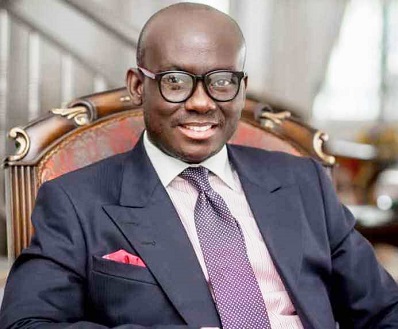
The Attorney-General (A-G) and Minister of Justice, Godfred Yeboah Dame, in submissions filed at the Supreme Court (SC), has said a deputy Speaker or any member presiding over proceedings in the House in the absence of the Speaker, was entitled to cast a vote, in accordance with article 104(1) of the 1992 Constitution.
The A-G also said a deputy Speaker of Parliament or any member presiding over proceedings in the House in the absence of the Speaker, is entitled to be counted for the purpose of making up the quorum of half of the Members of Parliament (MPs).
The submissions filed on January 24, 2022, contained in a statement of case filed, was a response to a suit by a law lecturer at the University of Professional Studies, and a citizen of Ghana, Justice Abdulai.
The plaintiff contendedthat it was unconstitutional for the Deputy Speaker to have counted himself for the purpose of making up the quorum of half of the Members of Parliament (MPs) required when Parliament approved the 2022 Budget and Economic Policy of Government, on November 30, 2021.
He said that to the extent that the Deputy Speaker could not be counted, the decision taken on November 30, 2021, to approve the budget was a nullity.
Mr Abdulai claimed from the SC, among others, a declaration that, upon a true and proper interpretation of articles 102 and 104(1) of the 1992 Constitution, a Speaker or any other person presiding over Parliament could not be said to be part of the members present for the purposes of decision making.
The plaintiff also claimed a declaration that upon a true and proper interpretation of articles 102 and 104(1), the First and Second Deputy Speakers when presiding over Parliament has the same authority as the Speaker of Parliament and can therefore not be counted as Members of Parliament present for the purposes of taking a decision in accordance with article 104(1) of the Constitution, 1992.
However, Mr Dame submitted that the view espoused by plaintiff suffered from a fundamental failure to distinguish between a “Speaker qua Speaker under the Constitution” and a “member of Parliament who deputizes for the Speaker” by virtue of articles 96 and 101.
The A-G submittedthat the plaintiff relied only upon a very narrow, literal and absurd construction of articles 96, 101, 102 and 104 of the Constitution, and thereby, failed to take account of the different kinds of quorums required for the different “businesses” of Parliament.
Mr Dame submitted that it is clear from article 102 that, for the ordinary business of parliament, there must be a quorum of only one-third of all the members of Parliament. Given that Parliament presently is made up of 275 members, the quorum required for the conduct of its business is 92 MPs.
The A-G urged held that, when the 1992 Constitution deliberately meant to specifically exclude a deputy Speaker or any person who at a material point in time is performing the role of Speaker, from being included in the reckoning of any number for any purpose in Parliament, it said so in unambiguous terms.
Photo to provide pix: A-G and Minister of Justice,GodfredYeboah Dame.
BY MALIK SULLEMANA






